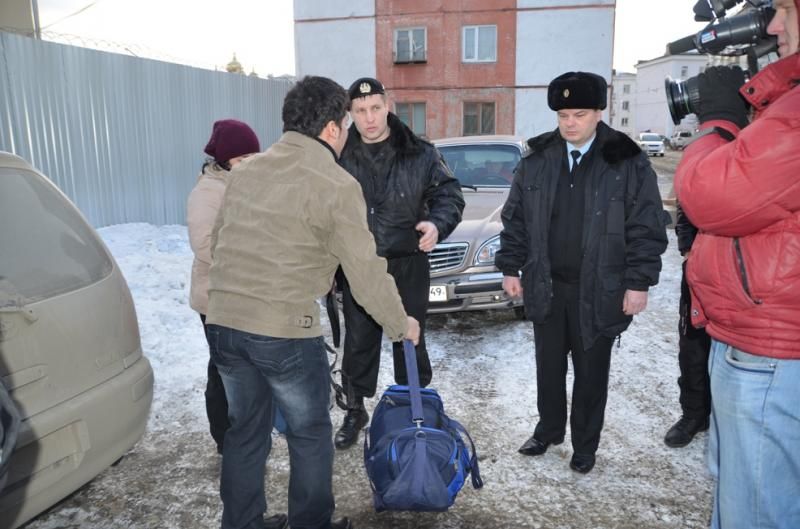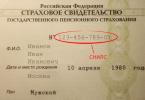The concept of administrative expulsion is often confused with the term "deportation". To begin with, it is worth clarifying that eviction does not threaten citizens of Russia. This administrative penalty applies only to foreign citizens and people without a specific citizenship who illegally stay within the Russian Federation.
The meaning of the term according to law
The main provisions of the eviction of foreigners or stateless persons are clearly spelled out in Russian law. Expulsion is the process of forcibly moving a citizen of another country or a stateless person outside of Russia. Sometimes the move is voluntary. As already mentioned, eviction outside the Russian Federation threatens only citizens of foreign countries and stateless persons who have violated the law on staying on the territory of the Russian Federation.
Administrative expulsion from the Russian Federation of a foreign citizen is carried out in accordance with the Code of Administrative Offenses of the Russian Federation (Article 3.10 -). The procedure for the eviction of a foreign citizen is determined by Federal Law No. 115-FZ (Article 34) -.
The reason for administrative punishment may be a violation of the norms adopted by the state. The decision on expulsion from the country is made by the judicial authority. In this case, a foreigner may be assigned a voluntary or forced eviction. In the second case, a foreign citizen is subject to placement in a special institution.
Do not confuse expulsion with deprivation of citizenship. The latter is not practiced. This process is contrary to international law and the Constitution of the Russian Federation.

Deprivation of the status of a citizen could be used as a preventive measure only during the Soviet era. They could deprive a Soviet passport for such violations as:
- actions discrediting the image of a Soviet citizen;
- subversion;
- activities that pose a danger to the USSR.
The expulsion is aimed not so much at ensuring the security of the state, but at combating. The problem of illegal migration in Russia is one of the most significant. Expulsion is a non-alternative method of suppression. Despite this, it can be challenged.
Expulsion is a preventive measure that can only be imposed by a judge on one of the above grounds. If the guilt of the violator is proven, expulsion becomes a matter of time. But the violator has the right to appeal the charge if he did not break the law, found any errors in the execution of the case or in the conduct of the trial.
You can appeal the expulsion within 10 days after the indictment. It is very important not to be late with the application, as a second chance may not be given. The judge may grant additional time if you provide good reason for the delay.
List of grounds
Expulsion can also be applied to foreigners according to a court decision for the following reasons:
- the violator worked on the territory of the Russian Federation without official permission;
- the migrant has not issued a temporary registration at the place of stay or it is invalid;
- the violator came to Russia under an employment contract (or for training), but stays in the country beyond the prescribed period;
- a person did not take care of obtaining a document giving the right to reside in the state from employees of the migration unit of the Main Department of Internal Affairs of the Ministry of Internal Affairs (formerly the Federal Migration Service);
- a foreign citizen is held liable for a violation of the Code of Administrative Offenses for the second time in a year.
Administrative expulsion of foreign citizens cannot be carried out in relation to some persons.
- A foreigner who has a close relative who is a citizen of Russia or a person who has the right to live within the Russian Federation on legal grounds. A spouse, parent, child is considered a close relative of a migrant.
- A foreign citizen who came to Russia as a political refugee. The status must be officially recognized.
- A foreign citizen who has a family in the Russian Federation and is the only breadwinner for her.
- Foreign soldier.
- An employee of a diplomatic institution.
- The person in whose homeland the fighting is taking place.
Forced and self-expulsion
The expulsion of foreign citizens from the Russian Federation is expressed in two ways:
- enforcement of a court resolution;
- self expulsion.
The method is established by a court order or a decision of an employee of the Russian border service. The basis for choosing the form of expulsion from the Russian Federation is the severity of the violation committed by the foreign citizen.
Independent departure from the state may be ordered by a judge. The resolution contains a requirement to voluntarily leave Russia within 5 days. Employees of the migration unit of the Main Department of Internal Affairs of the Ministry of Internal Affairs (formerly the Federal Migration Service) are responsible for the implementation of a court order by a migrant.
Evasion from independent crossing of the borders of the Russian Federation threatens a foreigner with a fine and forced expulsion. Consideration at this stage is carried out by the district court.
Forced expulsion is carried out if foreigners violate the migration rules adopted by the Russian government repeatedly during the year. If a migrant cannot leave the Russian Federation on his own, he leaves under duress. The procedure includes the mandatory placement of a foreign citizen in a specialized center.
Who pays for shipping
Payment for crossing the borders of the Russian Federation in accordance with a court resolution is made:
- the foreigner himself;
- by an inviting person or organization that helped the violator, facilitated his entry;
- embassy of the native state;
- public organization;
- at the expense of the budget of the Russian Federation.
Prohibition on further entry
Expulsion has serious consequences for a foreign citizen - he is escorted out of the Russian Federation. In relation to the violator, other administrative punishment is also applied. From the moment of administrative expulsion on a foreigner, the court imposes a ban on entry into Russia for a period of 3, 5 and 10 years. A foreign citizen or a stateless person forcibly moved outside the Russian Federation, after a five-year entry ban, will not be able to obtain a temporary residence permit, residence permit, apply for citizenship. Thus, a migrant expelled from Russia is subject to a further entry ban.
A three-year entry ban is valid if a person has been in the Russian Federation for more than 4 months, and has also been held liable under the Code of Administrative Offenses twice or more in a year.
The court may impose a ban on entry into the Russian Federation for 5 years in the following cases:
- the foreigner has repeatedly evaded tax deductions;
- when entering the Russian Federation, forged documents or false information were provided;
- the migrant repeatedly violated migration legislation;
- the foreigner has exceeded the period of stay established for him in the country;
- the migrant has an outstanding criminal record in the Russian Federation or abroad;
- a foreigner is a threat to the security of the Russian Federation.
Repeated eviction by a court verdict is appointed for a 10-year period.
How to return to Russia
Administrative punishment can be canceled. The only way is an appeal. During the consideration of the appeal, the effect of the previous court decision is suspended. The application must be drawn up taking into account the requirements and contain the grounds for its submission. If there is evidence of the applicant's innocence, the complaint will be satisfied. In this case, the person has the right to enter the country. If the eviction order is in effect, the complaint is meaningless. Changing the surname and other tricks for re-crossing the borders of the Russian Federation can lead to deportation and criminal liability.
Fictitious marriages

Free legal support by phone:
8 (800) 775-65-04 (call is free)
Also, the expulsion procedure may threaten those who decide to conclude in order to obtain citizenship. Fictitious marriages are very popular among scammers and scammers who seek to circumvent the current legislation of the Russian Federation. By law, marriage to a Russian citizen can become the basis for a simplified procedure for obtaining citizenship. Many foreign citizens and stateless persons register fictitious relationships.
If proven, such a concept as "void transaction" comes into force. All social benefits received by virtue of the conclusion of marriage ties are completely leveled and invalidated. The violator no longer has the right to be on the territory of Russia. He is subject to such punishment as the expulsion procedure.




